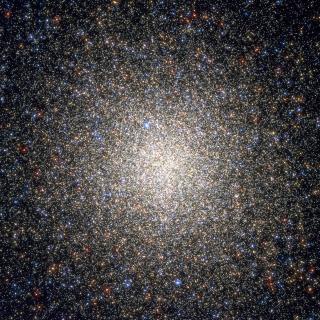Bibcode
Marino, A. F.; Milone, A. P.; Lind, K.
Bibliographical reference
The Astrophysical Journal, Volume 768, Issue 1, article id. 27, 8 pp. (2013).
Advertised on:
5
2013
Journal
Citations
30
Refereed citations
29
Description
M 22 is an anomalous globular cluster that hosts two groups of stars
with different metallicity and s-element abundance. The star-to-star
light-element variations in both groups, with the presence of individual
Na-O and C-N anticorrelations, demonstrates that this Milky Way
satellite has experienced a complex star formation history. We have
analyzed FLAMES/UVES spectra for seven stars covering a small color
interval on the reddest horizontal branch (HB) portion of this cluster
and investigated possible relations between the chemical composition of
a star and its location along the HB. Our chemical abundance analysis
takes into account effects introduced by deviations from the local
thermodynamic equilibrium (NLTE effects), which are significant for the
measured spectral lines in the atmospheric parameters range spanned by
our stars. We find that all the analyzed stars are barium-poor and
sodium-poor, thus supporting the idea that the position of a star along
the HB is strictly related to the chemical composition, and that the HB
morphology is influenced by the presence of different stellar
populations.
Based on data collected at the European Southern Observatory with the
FLAMES/UVES spectrograph under the program 085.D-0698A.
Related projects

Milky Way and Nearby Galaxies
The general aim of the project is to research the structure, evolutionary history and formation of galaxies through the study of their resolved stellar populations, both from photometry and spectroscopy. The group research concentrates in the most nearby objects, namely the Local Group galaxies including the Milky Way and M33 under the hypothesis
Martín
López Corredoira